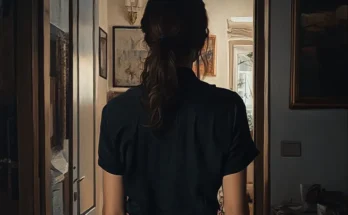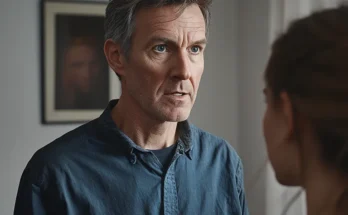Mara had always said it with the calm certainty of someone who kept every receipt and labeled every jar: “I have one child.” Lina was proof enough—freckled, fearless, a whirlwind of paint-stained fingers and violin practice. One child, one life she knew inside and out.
It changed on a rainy Tuesday at the market. Mara was choosing pears when she glanced up and felt the world split like a husk. A girl stood at the flower stall, her profile a mirror of Lina’s—the same unruly curls, the same small scar under the left eyebrow. She laughed at something the florist said, and the laugh was a chord Mara had heard since infancy.
Mara followed, heart stammering, as the girl walked toward the bus stop. “I’m sorry,” Mara blurted, then stopped, embarrassed by the panic in her voice. “You look like my daughter.”
The girl tilted her head, polite but wary. “A lot of people say I look familiar,” she said. “I’m Hana.” The name trembled inside Mara like a loose note.
That night, Mara told herself she’d imagined it. But the next day, she found herself at the bus stop again, then the day after. On the fourth day, Hana waved first.
They talked. About books, about the rain that never learned new tricks, about the bakery that sold bread like folded clouds. Hana mentioned a mother who collected seashells and a father who made quiet jokes. She mentioned a birthday—same month, same day as Lina’s.
The coincidence sat too neatly to ignore. At home, Mara pulled out an old envelope from the hospital—an apology she’d never opened, sent in the fog of new motherhood. Her hands shook as she slid the paper free. There’d been a power outage in the nursery that night. A malfunction in a label printer. “No harm occurred,” the letter promised. “Redundant checks were performed.” She’d taken their word because Lina was safe in her arms, breathing like tidewater.
But what if a word could be wrong and still sound reasonable?
Mara called the hospital. There were records, audits, a retired nurse with a careful memory. And then there was a phone number passed like a fragile heirloom. The other mother’s name was Soriya.
They met in a park that smelled of cut grass. Lina stood beside Mara, Hana beside Soriya. The two girls faced each other, identical and not: a freckle placed here instead of there, a stance borrowed from different homes. For a moment, no one spoke. Then Lina grinned, reckless as always. “I knew I was great,” she said, “but two of me? You’re welcome, world.”
The laughter broke the seal on the air.
There was bloodwork, yes, and paperwork, and a slow river of conversations. There were nights when Mara wept at the kitchen table for the minutes she had not known to miss. But there were also Saturdays braided together—museum steps, muddy soccer, two violins arguing sweetly in E minor. Love, it turned out, was not a pie to be sliced thinner; it was dough, and the more they worked it, the more it rose.
Months later, on another rainy Tuesday, Mara watched the girls race to the bus stop, passing the flower stall where everything had begun. She thought, not I have one child, not I have two, but this: I have a family that tells the truth. And that truth, even when it hurts, is the doorway through which love keeps walking in.


